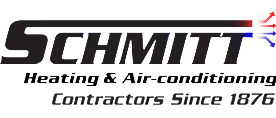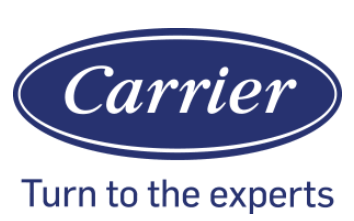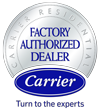How to Save HVAC Energy When It’s Hot Outside
/0 Comments/in Energy Saver, Energy Savings /by jnaabHVAC efficiency is all about having your heater and air conditioner operate less. It will not only help you save money on your bills, but it will also allow the equipment to keep running longer and reduce your maintenance costs, saving you money in the long run. Along with the financial benefits, HVAC efficiency is also environmentally friendly. The less you allow the heat and air conditioning unit to run, the less energy you utilize.
When we reduce energy consumption, less energy must be produced, resulting in fewer carbon emissions. Carbon emissions are usually what destroy the ozone layer and contribute to the bigger problem of global warming. Since we understand that using your heater and air conditioning system less makes good common sense, it’s now time to learn how you can achieve this goal.
Start with your thermostat
The initial way for you to have your HVAC system operate less is easy and free of charge. It is merely to set your thermostat according to the season. Many energy specialists say that it’s better to set the thermostat at 78 in the summer and 69 during the winter. Therefore your HVAC unit will run less since the temperature you set is nearer to the exterior temperature. This technique costs nothing, however if you are like many people, you will neglect to switch the setting on a regular basis. So a cost-effective option is to purchase a programmable thermostat. For about $20 (higher end models, with more customization, can run much higher), you can find one and simply do the installation on your own. You can also set the temperature higher while you’re gone, helping you save additional money.
Seal up your home
Another way to further improve one’s heating and air conditioning performance would be to set up and replace insulation in your house. It is often smart to update your insulation or change it out if it is aged. Though this may cost you up-front, you can possibly obtain a nice tax credit for switching it out.
Another excellent idea is caulk the doors and windows. Changing out worn caulk or incorporating new caulk is similar to shutting a typical size window in your house. You can even install film on your windows for added efficiency. Window film obstructs the sun’s rays and maintains a lower temperature in the house during the summer. Every one of these factors put together can add up to quite a savings in addition to a sizeable tax credit.
Save HVAC energy with routine maintenance
thing that you can do to boost efficiency of the HVAC system is to have regular maintenance performed and give your system a tune-up. Keeping the system adequately taken care of will help it to perform much better. Besides saving on your energy bill it will also help you save money by reducing the need to replace the equipment as often.
With some advance planning and a little money, it is possible to significantly lower your heating and air conditioning expenditures. It’s great for you and you’ll be doing the environment a big favor as well.
At Schmitt Heating and Air Conditioning, we understand how important the HVAC industry is in terms of aiding the environment and cutting down on energy consumption. This is why we are so committed to helping out San Francisco locals with limiting their energy bills and carbon footprint, with energy savings tips.
Energy Saving Technologies For Your Business
/0 Comments/in Energy Saver /byHeating, ventilation and air conditioning system (HVAC) is the single biggest energy consumer in residential buildings, accounting for over 40 percent of the residential energy consumption globally. Accordingly, installing an efficient HVAC system is the best way to cut on your energy bills and improve the comfort of your home at the same time. Without much ado, here is an overview of the top energy saving technologies that you can adapt for your business or home:
- Duct Sealing: Duct sealing eliminates leakage in your duct systems—which is a major source of energy waste. Although aerosol systems are believed to seal existing duct leaks, they are never guarantee against future leaks.
- Desiccant Dehumidification: Liquid desiccant solution absorbs moisture and evaporates it using heat. Desiccant dehumidification systems therefore save energy by removing humidity, pre-cooling makeup air, and lowering air conditioning load.
- Adjustable Speed Drives: Save energy by regulating motor speed to accommodate different HVAC loads.
- Energy Recovery Ventilation (ERV): Traps energy from the exhausted air and use it in preconditioning the incoming makeup air. This saves energy by reducing HVAC needs while maintaining the level and comfort of indoor air.
- Electronically Commutated Motors: Have variable-speed components that vary HVAC lower speed to match your premise’s demand.
- Displacement Ventilation: Uses low velocity cold and fresh air at the door level to displace the exhausted air near your ceiling, thereby improving indoor air quality. Their energy saving potential varies with premise design and climate.
- Dedicated Outdoor Airs Systems: Conditions outdoor air makeup air separately from the returning indoor air, thereby improving humidity. What’s more, it removes air from the outside air, reducing cooling system load.
- Demand Control Ventilation: This combines economizers with carbon dioxide sensors to regulate air levels while avoiding over ventilation (another form of energy waste).
- Variable Flow Volume Systems: These use multiple compressors and provide zone temperature control and part-load performance, saving energy while ensuring that your premises remain comfortable.
While the highlighted technologies will help you save a lot on your energy, they are not applicable in every situation. Accordingly, it is pertinent to consult your trusted commercial HVAC expert before installing any in your premise.
Follow us for more articles on HVAC systems and Energy saving technologies.
Debunking Indoor Air Quality Myths
/0 Comments/in Air Conditioning, Energy Saver, HVAC System /by
It is vital to optimize indoor air quality when operating any heating, cooling or ventilation system. Home and business owners can only accomplish this when they abandon popular IAQ myths.
1. Misconception: Air only becomes seriously polluted outdoors. Truth: It is not uncommon for indoor air to contain more than nine times as many contaminants as outdoor environments.
2. Falsehood: Ozone makes humans healthier. Reality: While it is true that ozone combats some types of bacteria and unwanted chemicals, things that produce ozone also generate unhealthy pollutants.
3. Untruth: A permanently installed gas detector will not significantly improve safety. Actuality: When properly maintained and calibrated, this type of detector truly can alert people to the presence of harmful gases.
4. Misconception: Every gas detector contains the same exact components. Truth: Different models use varying methods to detect gas. It is vital to thoroughly research and compare them.
5. Falsehood: The sensors on these detectors never need replacement. Reality: Sensor lifespans vary by manufacturer and the kinds of gases that they detect. Some last only 12 months; others need replacement after a decade.
6. Untruth: It does not matter where the detector is located. Actuality: People should install gas detectors near potential gas leak sources. Avoid placing them near open windows or vents.
7. Misconception: Detectors consume energy, so they raise power bills. Truth: A gas detector can actually cut electricity usage by controlling ventilation fans. It will only activate them when they are needed.
8. Falsehood: Indoor air quality is not a serious concern. Reality: People often stay indoors for as many as 22 out of 24 hours, so this is the most important type of air quality.
9. Untruth: Eco-friendly buildings benefit the environment but cannot make people healthier. Actuality: Green indoor materials enhance IAQ by releasing fewer gases as they age.
10. Misconception: Indoor air quality improvements remain very hard to achieve. Truth: Although they may prove costly, IAQ enhancements are quite possible with the help of skilled technicians.
By casting aside these IAQ myths and taking steps to improve air quality, building owners can prevent a wide range of health problems.
Please follow this blog to learn more about HVAC systems and energy efficiency.
10 Tips For A Summer Energy Savings Plan
/0 Comments/in Air Conditioning, Energy Saver, HVAC System /byThe summer season doesn’t have to mean higher cooler costs. With an HVAC energy savings home energy savings plan in place, homeowners can reduce their monthly bill. Here are 10 easy tips that you can follow to make your home energy efficient this summer.
1) Change out the filter in the air conditioner in the beginning of the season. Check the filter monthly after that, and clean it when needed. A clean filter will help to ensure that the AC is running optimally.
2) Use window coverings to block out sunlight, which can overheat the interior of the home. Make sure to use curtains, blinds, and shades to reduce the natural light streaming into the home during the day. Choose light colored blinds and curtains so that you can enjoy natural light while still blocking out the heat.
3) Make sure that all windows and doors that lead to the outside are closed and sealed up tightly when the air conditioner is on. An open window will allow air to escape easily, and it can have your AC unit running nonstop for hours.
4) Insulate the attic and the walls to help keep cool air in and hot air out. Air can easily leak in through an attic that hasn’t been properly insulated. Cement wall blocks can also allow air to seep in, so they should be sprayed with a foam insulation.
5) Do a thorough check around the home to find sources of air leaks. Places to check include electrical outlets, windows, doors, and fireplaces.
6) When the AC is running, open up interior doors between rooms to allow cool air to flow. Also, close up the vents in rooms that aren’t being used.
7) Have air ducts inspected for leaks, and if any are found, have them repaired right away. Even a small hole or tear in a duct can result in higher heating and cooling bills.
8) Use fans to cool down. Ceiling fans are perfect for cooling off in a room, but be sure to shut them off upon leaving.
9) Make sure to set the thermostat on “Auto”, and not “On”. When the thermostat is set to “On”, it will run nonstop.
10) Schedule a tune up for your HVAC system to ensure that it is performing as efficiently as possible. A skilled and reputable technician will able to identify any potential problems with your unit, and you can make any necessary repairs to keep your costs down over the years.
Take advantage of summer energy savings by following these tips. Manage cooling costs by ensuring that your HVAC system is running optimally all season long. Call today to learn more about how an energy efficient HVAC system replacement will help you to save money.
Saturday - Sunday Closed



